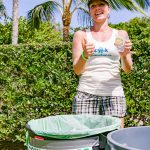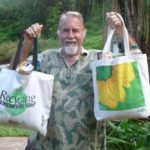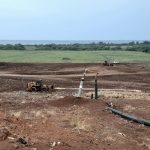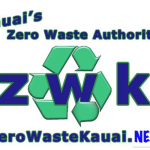Movie Night
ZWK partnered with Kauai Community College to put on a number of…
Alanna Le Sueur
Bio
JoAnn Yukimura
JoAnn Yukimura was mayor of Kauaʻi County from 1988-1994 and served on…
Jenn Sifuentes
Bio
John Patt
Bio
ZWK Ohana
What is Zero Waste?
Zero Waste is more than an approach to waste management and recycling,…
What is Zero Waste?
John Harder
John is a Berkeley dropout who came to Kaua‘i in 1969 and…
Landfill Expansion Environmental Assessment
As the current Kekaha Landfill has a short remaining life span and…
HI 5 Expansion Act
HI 5 Expansion Act: Inclusion of Aluminum Can-Packaged Wine in Mandatory Recycling…
Past Testimony on the Kauaʻi ISWMP
Testimony on the Kauaʻi Integrated Solid Waste Management Plan Update Draft 4By…
Ruta Jordans
Ruta Jordans has followed a zero waste way of living all her…
Enhancing Plastic Container Labeling for Consumer Clarity and Recycling
Enhancing Plastic Container Labeling for Consumer Clarity and Recycling: A Proposal for…
Disposable Plastics Policy Definitions
“County Facility” means any building, structure, or vehicle owned and operated by…
ZWK Resource Guide
Background MRF
The County of Kauaʻi”s number 1 goal in the General Plan is…
Zero Waste Kauaʻi Testimony on the ISWMP Draft 4
Testimony on the Kauaʻi Integrated Solid Waste Management Plan Update Draft 4By JoAnn…
Join Us
ZWK Membership
Our Story
Zero Waste Kauai (ZWK) was founded in 2006 by Pat Gegen and…
Our Story
Zero Waste Kauai (ZWK) was founded in 2006 by Pat Gegen and John Harder (aka the Dump Doctor) in response to a proposal in the County’s Integrated Solid Waste Management Plan update (ISWM Plan) to include Waste to Energy (incineration) as an option in the County’s waste management strategy.
Our Intent
Our original intent was primarily education: to expand the public’s awareness of the potential of Zero Waste Management to more effectively manage our discards, rather than employ incineration as a primary strategy… and it worked!
Our Success
As of 2020, the island of Kauai successfully diverts approximately 43% of landfill-bound waste, primarily through HI-5 Recycling programs and Green Waste Management sites, as well as food waste diversion practices such as composting and large-scale events management in partnership with ZWK.






